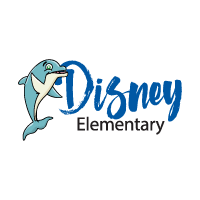Information about our special programs
Millard is proud to offer the Core Knowledge program at two elementary schools. The Millard Core Knowledge program provides cultural literacy through a sequential and challenging curriculum rooted in the E.D. Hirsch Core Knowledge Sequence and philosophy. The Core Knowledge Sequence consists of a body of widely used knowledge placed into the curriculum in a coherent and sequential design. The program develops rich reading and writing skills through the use of the Spalding Method, Shurley English, and phonics. This spiral also includes history and geography, science and health, music, visual arts, and language arts (poetry, idioms, reading, writing, and grammar). The teacher-directed environment establishes high expectations through whole-group learning and fosters analytical thinking. Students are challenged through an in-depth and swiftly-paced curriculum which develops higher-level thinking skills and establishes a solid foundation to build upon. For more information, please contact Special Programs Facilitator, Bréann Avery, at 402.715.8815 or [email protected]
Core Knowledge at Disney Brochure
Core Knowledge at Disney Elementary
There are many program models for students who are acquiring English as an additional language. Because we serve a population that represents great diversity in language and culture, the ELL program in Millard is a content-based English Language Development (ELD) program in which students are grouped by language ability level. Group assignments are flexible and temporary, changing according to the learners’ needs. Students spend the majority of the school day mainstreamed in the general education program, receiving relevant, meaningful support services from highly trained ELL teachers in ELL classes.
The MPS K-12 English Language Development curriculum has been written by Millard teachers and is aligned to the Nebraska English Language Proficiency Standards (January, 2014). These standards draw on current theory, sound classroom practice, and educational standards from an array of national organizations and states. There is an emphasis on the critical language, knowledge about language, and skills using language that are found in college-and-career-ready standards and that are necessary for English language learners to be successful in schools.
Lessons in the ELL classroom are centered on language functions (what students do with language to accomplish content-specific tasks) and language forms (vocabulary, grammar, and discourse specific to particular content areas or disciplines) which are needed by English learners as they develop competence in the practices associated with English language arts and literacy, mathematics, and science. ELL teachers place an emphasis on building background and developing vocabulary to support students in the core content program. Instructional strategies based on research and practical experiences are used to maximize student involvement in classroom activities.
There is an explicit recognition that language acquisition takes place across the content areas and therefore collaboration among educators is required to enhance and excel the learning experiences of English language learners. Content area teachers and ELL teachers work together to understand and leverage the language and literacy practices used across content areas and to cultivate a deeper knowledge of the disciplinary language that English learners require to be competitive among their native English speaking peers (Understanding Language Initiative, 2012).
Alternate Curriculum Programs
Student placement in an Alternate Curriculum Program (ACP) is considered by the IEP team when a child has a significant cognitive disability that impacts intellectual function and adaptive behavior. Their curriculum and instruction is aligned to the Nebraska Extended Indicators and the student requires extensive, direct instruction and substantial supports to achieve measurable gains on the Nebraska College and Career Academic Standards for the grades in which they are enrolled. Features of the Alternate Curriculum Program include an alternate curriculum aligned with Nebraska Extended Indicators that are individualized to each child’s instructional needs in a small group setting and an emphasis on inclusionary practices to the most appropriate extent possible as determined by the IEP team.
Millard Preschools offer both half day and full day options for children younger than kindergarten age. Kindergarten age is defined by the Nebraska Department of Education as children who have not reached the age of five on or before July 31st of the current school year.
Our preschools provide learning experiences that help young children get ready for kindergarten. The curriculum reflects the Nebraska Early Learning Guidelines and Millard's preschool standards and indicators. It aligns with our elementary program to provide a seamless transition to school. Ongoing formative assessment and collaborative planning support the diverse developmental, academic, cultural, and family needs of our students. The preschool schedule includes whole group, small group, and independent learning opportunities. One-third of the time is spent in individual choice interest areas that allow children to explore and expand their learning through play. These different structures are provided to support social-emotional, physical, cognitive and language development. Early literacy experiences focus on oral language, basic concepts, vocabulary, phonemic awareness, phonics, and listening comprehension. Early mathematics experiences focus on number sense, problem-solving, and basic concepts in the areas of geometry/spatial sense, measurement, reasoning, patterns/relationships, and using data. Additional learning opportunities include dramatic play, block play, writing, math, art, music and movement, science and discovery, library exploration, technology, fine motor, and outdoor playtime.
The child’s home and school are their two most important worlds. Our goal is to ensure that we recognize and support parents as the child’s first teacher. We welcome families and partner with them. Regularly scheduled family engagement activities and parent education opportunities are an important component of our preschool program.

